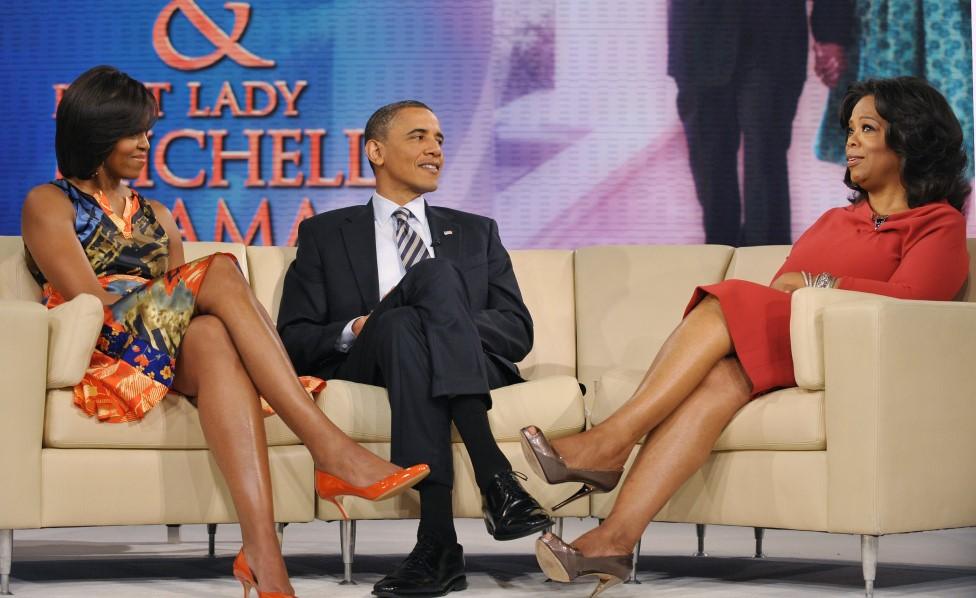Interviews with famous personalities can shape public opinion, reveal hidden truths, and spark cultural conversations that resonate for years. From Oprah Winfrey’s masterful sit-downs to Barack Obama’s candid reflections, certain interviews stand out as pivotal moments that redefined how we view iconic figures. Below, we explore some legendary interviews that shifted public perception, focusing on their impact in the United States and Canada, where media influence is profound.
Oprah Winfrey: The Queen of Revelatory Interviews
Oprah Winfrey has earned her reputation as the greatest celebrity interviewer of all time, blending compassion with relentless follow-up questions to elicit groundbreaking revelations. Her ability to create an intimate, confessional atmosphere has reshaped how audiences perceive celebrities.
Oprah and Michael Jackson (1993)
In 1993, Oprah sat down with Michael Jackson at his Neverland Ranch, drawing 90 million viewers for what became the most-watched television interview ever. At a time when Jackson faced intense scrutiny over his personal life, Oprah’s questions about his plastic surgery, childhood, and father-son relationship humanized the pop icon. His candid admission, “When people make up stories that I don’t want to be who I am, it hurts me,” addressed rumors head-on, softening public judgment and reinforcing his vulnerability. This interview remains a benchmark for candid celebrity confessions.
Oprah and Whitney Houston (2009)
Oprah’s two-part interview with Whitney Houston in 2009, just three years before Houston’s death, offered a raw retrospective of the singer’s life. Houston opened up about her struggles with substance abuse and her abusive relationship with Bobby Brown, admitting, “We were lacing our marijuana with base. We weren’t on crack.” This honesty shifted public perception from tabloid caricature to a woman grappling with real challenges, fostering empathy among viewers. The interview’s legacy endures as a poignant reflection of Houston’s resilience.
Oprah and Prince Harry & Meghan Markle (2021)
Oprah’s 2021 interview with Prince Harry and Meghan Markle sent shockwaves across the globe, particularly in North America, where fascination with the British royal family runs deep. Meghan’s revelations about suicidal thoughts and concerns within the royal family about her son Archie’s skin color exposed systemic issues, challenging the monarchy’s pristine image. Oprah’s pointed follow-up, “They were concerned that if he were too brown, that that would be a problem?” clarified the gravity of the issue, sparking widespread discussions about race and mental health. This interview redefined the couple as advocates for transparency and change.
Barack Obama: From Senator to Statesman
Barack Obama’s interviews, both as a rising politician and former president, have shaped his image as a relatable yet reflective leader. His conversations with Oprah, in particular, offered insights that resonated with American and Canadian audiences.
Obama with Oprah (2004)
In 2004, Oprah interviewed Barack Obama, then an Illinois state senator, shortly after his electrifying Democratic National Convention speech. His discussion of his multicultural upbringing and rejection of racial stereotypes—“Children can’t achieve unless we raise their expectations and turn off the television sets and eradicate the slander that says a black youth with a book is acting white”—struck a chord. This interview introduced Obama as a unifying figure, laying the groundwork for his presidential candidacy and boosting his public appeal.
Obama with Oprah (2020)
In 2020, Oprah interviewed Obama for The Oprah Conversation on Apple TV+ to discuss his memoir A Promised Land. Conducted via green screen technology, with Obama in Washington, D.C., and Oprah in California, the interview felt intimate despite the distance. Obama’s reflections on the Sandy Hook shooting as his “hardest day” and the toll of the presidency on his marriage revealed a vulnerable side, countering perceptions of him as solely charismatic. His admission of needing “a certain amount of megalomania” to run for president added a layer of self-awareness, deepening public respect for his introspection.
Other Iconic Interviews
Barbara Walters and Presidential Figures
Barbara Walters’ interviews with every U.S. president and first lady since Richard Nixon reshaped perceptions of political figures. Her ability to balance tough questions with empathy made leaders like Bill Clinton and Ronald Reagan appear more human, influencing how North American audiences viewed their leaders. Her legacy complements Oprah’s, showing the power of journalistic rigor in shaping public narratives.
Tom Cruise on The Oprah Winfrey Show (2005)
Tom Cruise’s 2005 appearance on The Oprah Winfrey Show, where he infamously jumped on the couch to profess his love for Katie Holmes, became a cultural touchstone. While polarizing, it shifted perceptions of Cruise from a reserved A-lister to an eccentric, passionate figure. The moment’s viral parodies cemented its place in pop culture, influencing how audiences in the U.S. and Canada viewed celebrity authenticity.
Why These Interviews Matter
These interviews transcended mere conversation, sparking cultural shifts and reshaping public views. Oprah’s ability to draw out vulnerability and Obama’s reflective candor created moments of connection that resonated across the U.S. and Canada. They addressed universal themes—identity, resilience, and authenticity—while leveraging the power of media to amplify voices and challenge assumptions. Whether through Oprah’s confessional couch or Obama’s introspective lens, these legendary interviews remind us of the power of asking the right questions at the right time.
